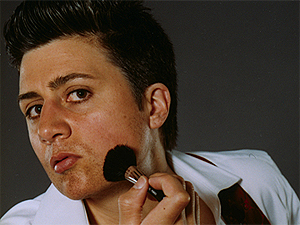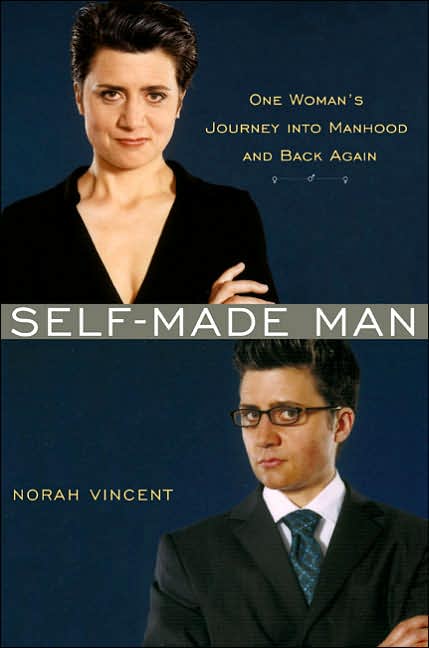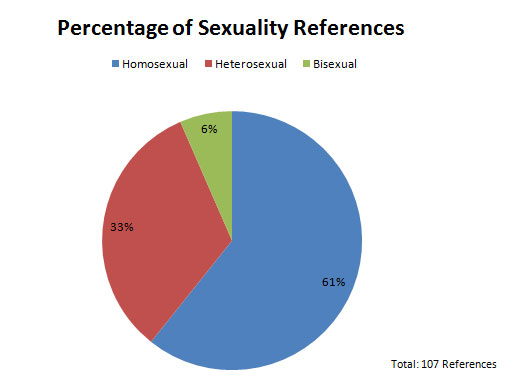Constructing Masculinity
I’ll be moderating Monday’s panel as “Self-Made Man” Norah Vincent. Norah was the “strange man” who (as Rebecca announced) spoke @ Haverford last week about her experiences as a woman in man’s clothes (this report comes from The Bi-College News): she is a lesbian, a tomboy and an “immersion journalist” who joined a Men’s Bowling League, got a job as a salesman, began to date women, went to strip clubs and visited a monastery. What she discovered (okay, admitting that this is a woman’s account) was how much men need–and seldom get–male companionship: “There were a lot of walls…the limits of male friendship…and the limits of showing emotions”; everyone around her as in an “emotional straitjacket.”
Anyhow, though I didn’t hear Vincent’s talk, reading about it nudged me to admit that guys–who are as hugely constricted, and as largely constructed, by the sex-gender system as women are–got a terrible rap on our imaginary panel on Wednesday.
I want to give them a bit more space, with the reminder that this is NOT a course in “women and technology”….
Comments are closed.



I wonder to what degree men getting a bad rap was just the men whom we chose to portray. I mean, Frankenstein’s Monster isn’t the greatest example of a good person. G.I. Joe IS an enormous fan of penis-shaped weaponry. And Ken is basically just a flimsy foil for Barbee. I’m thinking about the intersection of gender and technology here, and trying to decide what fictional males embody that in a really positive way. I mean, if we’d had an “action figure” who wasn’t doing all the prototypical, oversexualized killing things that G.I. Joe does, would we think of him as “male” at all? I’m honestly not sure on this.
So first of all I’m really interested in reading this book now and I am saddened that I missed the talk last week.
Secondly, the lack of male companionship reminded me of a movie I saw a preview for recently. It’s called ‘I Love You, Man’ and is about a man who recently proposed to his girlfriend only to realize he doesn’t have a guy friend to be his best man. He lets his new fiancee and her friends set him up on “man dates” to find someone to be his best friend and best man.
I’ve also noticed a lack of the male viewpoint in Gender and Sexuality classes. It seems that a majority of women take these classes and that the man’s voice becomes lost somewhere.
I agree with Solomon’s sentiment. Ken is, in fact, not an oversexualized, stereotypical male and we simply see him his a foil for Barbie – he was made for her. While G.I. Joe is the epitome of masculinity with his large guns and huge muscles.
Masculinity only seems to be recognized in it’s most pure, hypersexualized state.
“I mean, Frankenstein’s Monster isn’t the greatest example of a good person”
Perhaps you should read the book (or even watch the movies.) We could all afford to be as kind and gentle and humane as the Monster wanted to be, strove to be.